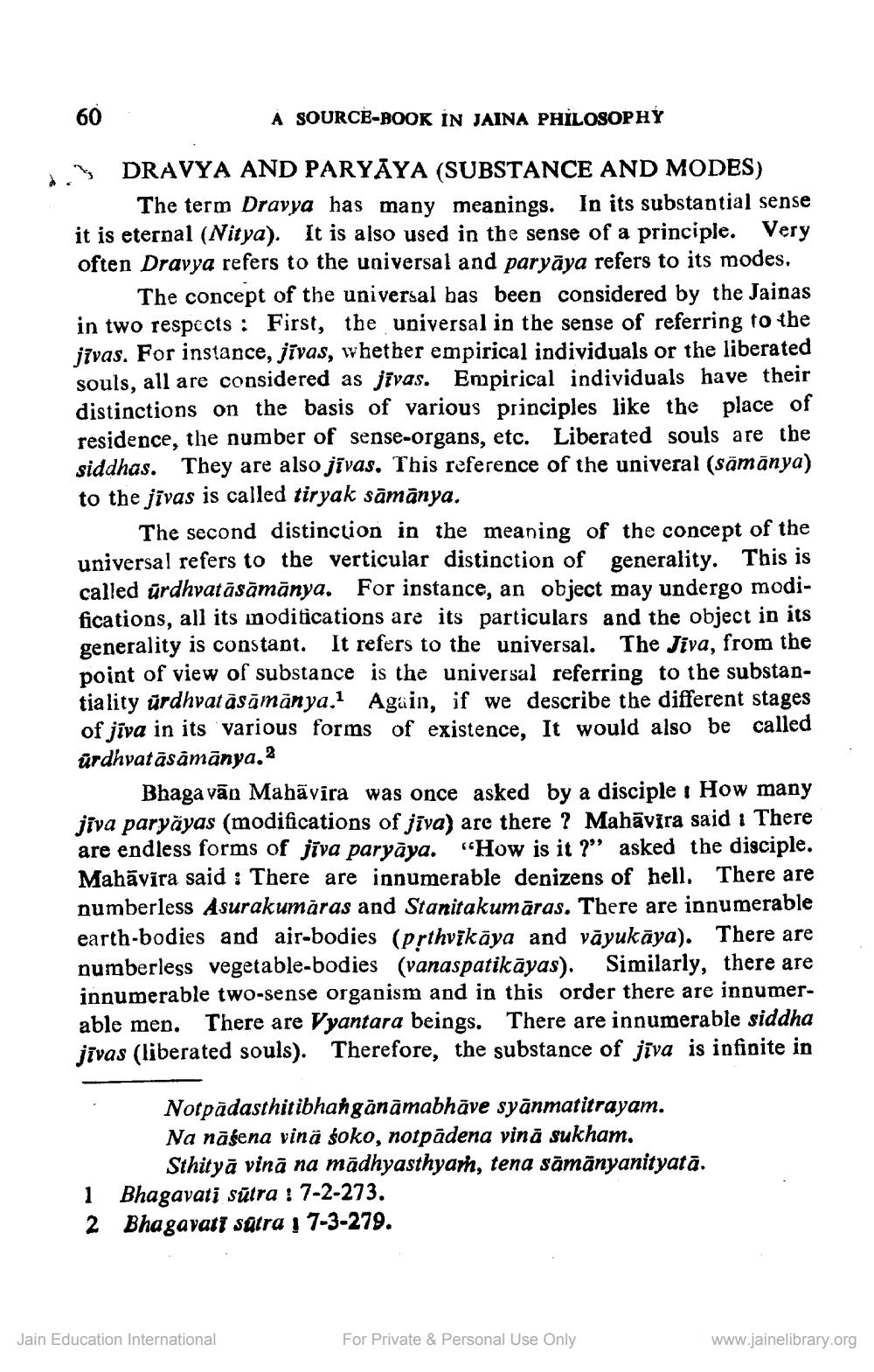________________
A SOURCB-BOOK ÎN JAINA PHİLOSOPHY
) DRAVYA AND PARYAYA (SUBSTANCE AND MODES)
The term Dravya has many meanings. In its substantial sense it is eternal (Nitya). It is also used in the sense of a principle. Very often Dravya refers to the universal and paryāya refers to its modes.
The concept of the universal bas been considered by the Jainas in two respects : First, the universal in the sense of referring to the jīvas. For instance, jīvas, whether empirical individuals or the liberated souls, all are considered as jīvas. Empirical individuals have their distinctions on the basis of various principles like the place of residence, the number of sense-organs, etc. Liberated souls are the siddhas. They are also jīvas. This reference of the univeral (sämānya) to the jivas is called tiryak sāmānya.
The second distinction in the meaning of the concept of the universal refers to the verticular distinction of generality. This is called ürdhvatāsāmānya. For instance, an object may undergo modifications, all its modifications are its particulars and the object in its generality is constant. It refers to the universal. The Jiva, from the point of view of substance is the universal referring to the substantiality urdhvatāsāmánya. Again, if we describe the different stages of jiva in its various forms of existence, It would also be called ürdhvatāsāmānya.
Bhagavān Mahāvira was once asked by a disciple : How many jiva paryayas (modifications of jiva) are there ? Mahāvīra said i There are endless forms of jīva paryaya. "How is it?" asked the disciple. Mahāvira said : There are innumerable denizens of hell. There are numberless Asurakumāras and Stanitakumāras. There are innumerable earth-bodies and air-bodies (prthvīkāya and vāyukāya). There are numberless vegetable-bodies (vanaspatikāyas). Similarly, there are innumerable two-sense organism and in this order there are innumerable men. There are Vyantara beings. There are innumerable siddha jīvas (liberated souls). Therefore, the substance of jīva is infinite in
Norpādasthitibhangānāmabhāve syānmatitrayam. Na nāśena vinä soko, notpadena vină sukham.
Sthityā vina na madhyasthyar, tena sāmānyanityatā. Bhagavatį sūtra : 7-2-273. Bhagavatt sätra 1 7-3-279.
1 2
Jain Education International
For Private & Personal Use Only
www.jainelibrary.org




